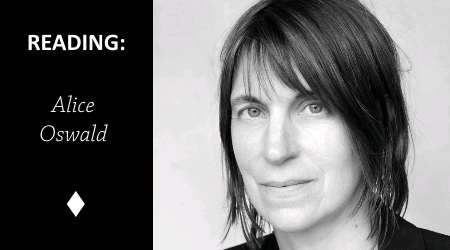Alice Oswald (b. 1966) is an Oxford-educated classicist and award-winning poet. She has written poetically about ecology and wrote her own take on the Iliad. Her 2016 book is called “Falling Awake”. I read the 1996 poem “Wedding”:
Wedding
From time to time our love is like a sail
and when the sail begins to alternate
from tack to tack, it’s like a swallowtail
and when the swallow flies it’s like a coat;
and if the coat is yours, it has a tear
like a wide mouth and when the mouth begins
to draw the wind, it’s like a trumpeter
and when the trumpet blows, it blows like millions…
and this, my love, when millions come and go
beyond the need of us, is like a trick;
and when the trick begins, it’s like a toe
tip-toeing on a rope, which is like luck;
and when the luck begins, it’s like a wedding,
which is like love, which is like everything.
A very nice example of using a classical style in modern poetry. The imperfect end rhyme, the iambic pentameter, try reading this aloud it sounds like a stormy love poem. The theme of transformation, speeding up with the toe tip-toeing on a rope, like luck, and then the wedding, and then everything.
A tack is a line (rope or chain) that regulates the angle at which a sail is set in relation to the wind, to tack is to turn the boat into the wind. This indicates the beginning of strain and struggle in the relationship in the first half of the sonnet. The swallowtail becomes a coat, the coat tears, the tear is a mouth (they talk about it). Is this about ordinary arguments in a relationship? When they ‘draw wind’ they become part of the culture of the lovers. Just like anyone else’s, just like millions…
I find the second half mysteriously beautiful. From the many and the millions (the universal) we return to this particular love (or maybe not?) and the luck it experiences. The trick is that millions have the same experience and talk about it in the same way, yet it is still our individual experience. We can think this conceptually only if we accept our loving bond as luck we commit to (wedding), because only this particular commitment makes love universal.
Perhaps this interpretation is too mystical or dialectical, what do you think? I can’t help but hear the echo of Meister Eckhard, Hegel, and Baudrillard.

One thought on “Reading: Wedding by Alice Oswald”
Comments are closed.